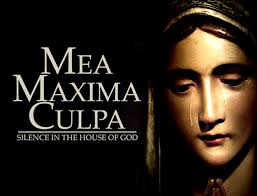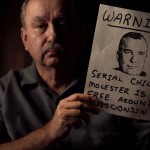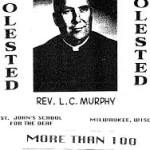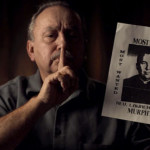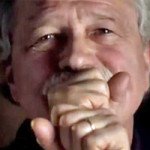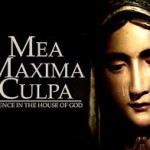Before I start this review, it’s worth saying that as an atheist you would not expect me to be supportive of the Catholic Church, and in truth I despise it for many reasons, but even if I had been a Catholic I would have left the church over the episode described in this movie.
Mea Maxima Culpa is a remarkable and powerful documentary charting the course of the battle to expose and punish paedophile priests within the Catholic church, from a school for the deaf in the 1960s and the abuse conducted there by Father Lawrence Murphy, right the way up to the Vatican and the role of Cardinal Ratzinger, later Pope Benedict XVI – and indeed, his resignation as pope since the facts became fully apparent.
This is unquestionably the movie the Vatican did not want you to see, and its subtitle speaks volumes: Silence in the House of God. This is a film placing into ironic context the code and official policy of the Vatican just as much as the Mafia: omertà, silence. For generations the policy of the church has been to defend itself by denial, cover-up and blaming victims. Compassion does not run anything like as deep as they would claim.
That it achieves such weight and power can be attributed to three factors: that film-maker Alex Gibney has marshalled his argument based on facts and the dignity of the victims; that the church condemns itself through its actions with greater eloquence than anything he could add; and the interviews with the victims themselves, mostly deaf and signing but the rawness of their emotion speaks volumes.
What is most remarkable is this is achieved without any comment against religion itself, only of the actions of those in a privileged position within organised religion and therefore with the greatest responsibility to the vulnerable people within their care, but who are inevitably believed. In the case of young boys in St Johns school for the deaf in Milwaukee, Wisconsin, their families could not sign, so they were cut off from the world, unable to communicate with anybody but the controlling priest, and he was the one abusing them. The fear and misery resulting from such a fate, and its effect on their adult lives, does not bear thinking about.
But these brave young men fought back, and these interviews are a testament to their courage in facing up to the most powerful organisation in the world, one which used any tactics at its disposal to silence and discredit them. This story is not yet complete, though you suspect none of the perpetrators will end up behind bars for their disgraceful crimes if the Church can prevent it.
One example quoted is that of the “singing priest,” Father Tony Walsh, popular for his Elvis impersonations but protected in spite of over 200 reported incidents of child abuse in Ireland. He was finally convicted of 123 cases, but since the sentences are being served concurrently the longest he can actually spend behind bars is 16 years. These quotes about Walsh are included in the movie:
‘“Fr Tony Walsh is probably the most notorious child sexual abuser to have come to the attention of the Commission… His pattern of behaviour is such that it is likely that he has abused hundreds of children.” – Introduction to Chapter 19 of the Murphy Report
“Tony Walsh is extremely compulsive – there have been an awful lot of children involved. He is a very disturbed man. He is always going to be dangerous. He could not be let near schools, children, Confession without a grille…” – Psychiatrist who treated Tony Walsh in Stroud in the UK in 1988
Yet the Vatican did not defrock Walsh until he had been convicted by the Irish justice system and roundly condemned by everyone up the the Taoiseach, Enda Kennedy. How can anyone have trust in the Vatican if they are prepared to defend the indefensible?
The documentary tells without being in any way emotive how the evidence rose and was presented, and how the leaders of this Church were forced to pay compensation, though even there it was the least they could possibly get away with. It speaks with compassion and feeling about the nature of being a powerless victim. As such it is utterly compelling. Everyone should be forced to see what happens in reality when we put our faith and trust in an all-powerful but morally corrupt body like this church.
And in case you didn’t know, the title translates from the Latin into English as “My most grievous fault (or guilt.)”

